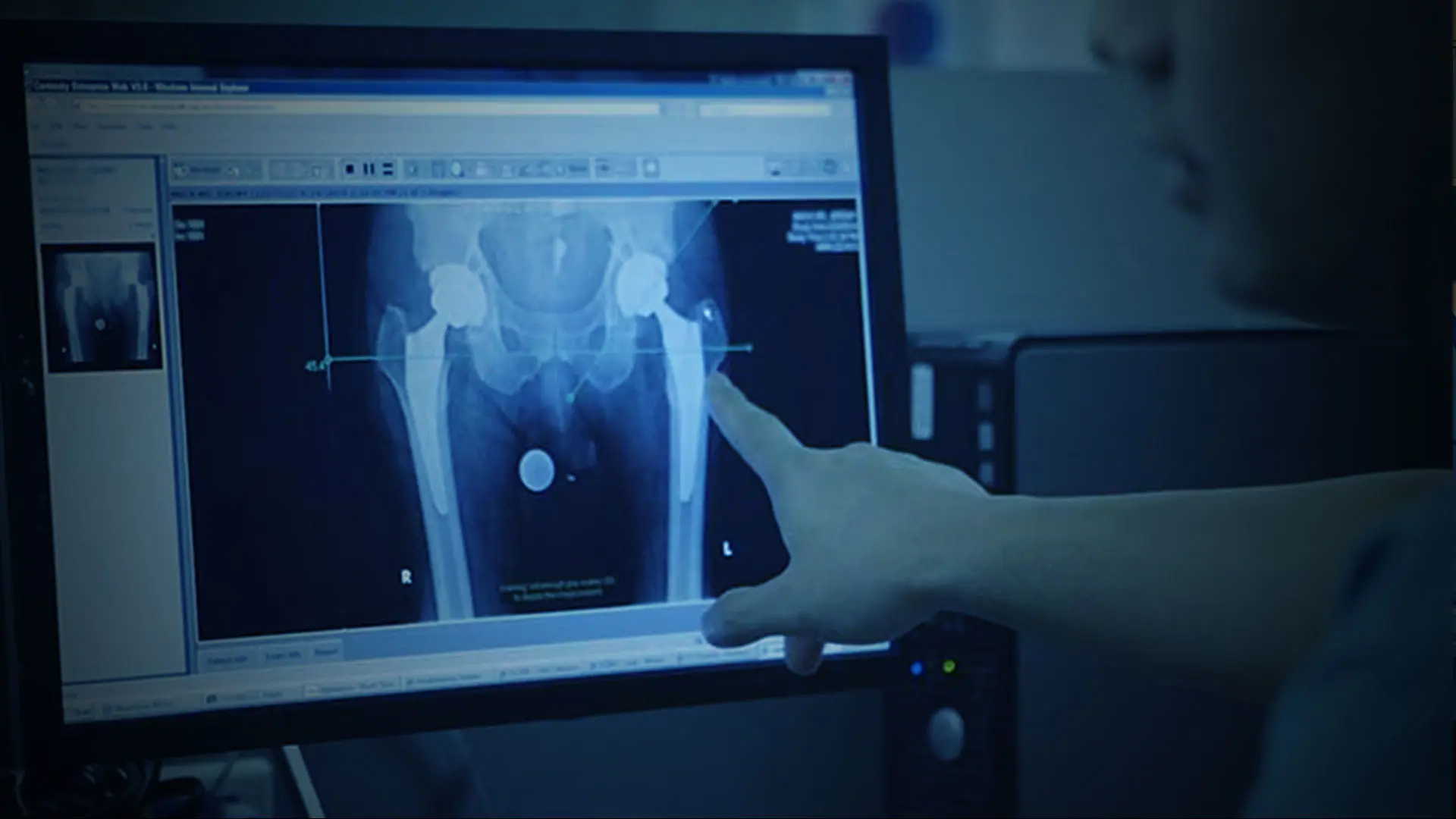Advances in surgical techniques and pain control have expanded the number of patients who can undergo outpatient hip and knee replacements. Launched in 2016, the Outpatient Joint Replacement program at The Mount Sinai Hospital and Mount Sinai West has grown rapidly, treating patients more efficiently without compromising safety.
“We’ve translated our historically excellent outcomes to the outpatient space,” says Darwin Chen, MD, Director of Outpatient Joint Replacement at the Mount Sinai Joint Replacement Center and Associate Professor of Orthopedic Surgery at the Icahn School of Medicine at Mount Sinai.
For decades, hip and knee replacement surgeries were strictly inpatient procedures. As recently as the early 2000s, joint replacement patients stayed in the hospital for three to five days following surgery. That has changed thanks to several important advances. “We now have surgical techniques that are less invasive, as well as novel procedures such as anterior hip replacement and robot-assisted surgery,” Dr. Chen says. “There have also been improvements in anesthesia and pain control, including short-acting spinal anesthesia and nerve blocks.”
Together, those developments allow hip and knee replacement patients to stabilize and get back on their feet within hours rather than days. According to Dr. Chen, detailed scoring criteria enable surgeons to identify which patients can safely undergo outpatient surgery. In general, patients under 75 with stable medical conditions and support systems at home are good candidates.
Following surgery, patients are evaluated on a range of criteria before they are discharged home. “Even if a patient plans for outpatient surgery, we won’t send them home unless they pass all the necessary physical metrics and are stable on their feet, to decrease the risk of falls,” Dr. Chen adds.
Once home, patients typically receive two weeks of in-home physical therapy. After their post-op follow-up appointments, many patients transition to outpatient physical therapy. The medical team works closely with social workers to ensure patients receive the services and support necessary to thrive in their homes.
Learn about the Mount Sinai Joint Replacement Center's diverse range of services.
Mount Sinai’s Outpatient Joint Replacement Program: How It Evolved, and What’s Next
Outpatient procedures are associated with increased patient satisfaction and cost savings while maintaining Mount Sinai’s strict safety standards. Despite the benefits, however, the New York City region has been a bit slower than some other parts of the nation to adopt outpatient joint replacement, says Dr. Chen. “Some of that is logistics—it’s harder for patients to get in and out of the city on public transportation, especially if they are coming from outer boroughs,” he explains. “But there’s also a cultural element, where many of our patients have felt more comfortable with longer hospital stays.”
However, the COVID-19 pandemic accelerated the push for outpatient procedures. During the height of lockdowns, with inpatient procedures on pause, many patients deemed suitable candidates for outpatient joint replacement opted to move forward with their surgeries. “From that experience, we learned that outpatient joint replacement is appropriate for a larger swath of patients than we’d traditionally considered,” Dr. Chen says.
Expanding outpatient joint replacement services is a goal aligned with Mount Sinai’s mission to produce superior patient outcomes. The Mount Sinai Joint Replacement Center at The Mount Sinai Hospital received Advanced Certification in Total Hip and Knee Replacement from The Joint Commission and has nationally recognized orthopedic experts involved in innovative research, including efforts to develop new minimally invasive surgeries for hip and knee replacements and to strategically manage pain after joint replacement surgery.
To meet the growing demand for outpatient hip and knee replacements, Mount Sinai is preparing to launch a state-of-the-art ambulatory surgery center near Mount Sinai West, located in Manhattan’s Midtown West neighborhood, in 2024. The center will offer outpatient joint replacements and other minimally invasive procedures, including spine procedures.
“Having an ambulatory surgery center will provide a more streamlined process for patients. We expect it will lead to a better patient experience while allowing us to maintain our excellent outcomes and safety standards,” Dr. Chen adds.
Featured

Darwin Chen, MD
Director, Outpatient Joint Replacement, the Mount Sinai Joint Replacement Center, and Associate Professor of Orthopedic Surgery
